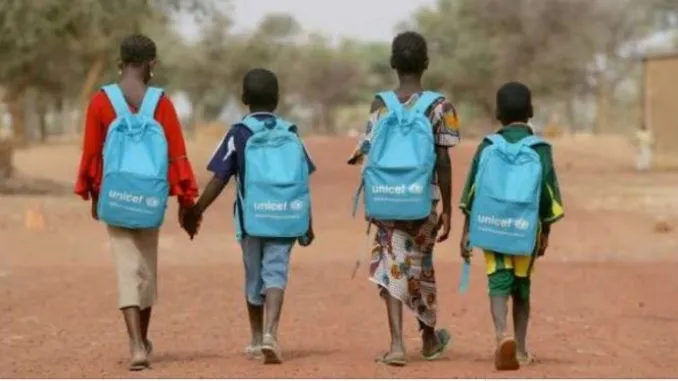On Thursday, Vice President Kashim Shettima dropped a bombshell at a conference organised by the Nigeria Governors’ Forum (NGF). His message? The out-of-school children of today could become a threat to their peers in the classroom tomorrow. Talk about a wake-up call!
My thoughts on this? I think the vice president hit the nail on the head, and my reasons aren’t far-fetched.
To be sure, some governors have been consistently calling for increased focus on education. Borno State Governor Babagana Zulum has been a strong advocate for educational reforms. However, the scale of the problem, as outlined by Shettima, is staggering.
Trust our politicians to always major in the minor. But this time, I think they’re onto something big. Politics is a game of numbers, and these numbers are alarming. According to recent data, 25.6 percent of primary school-age children and 29.6 percent of secondary school-age children are currently out of school. In states like Kebbi, Zamfara, and Bauchi, more than 60 percent of primary school-age children are not in school, with Kebbi at a staggering 64.8 percent. These aren’t just statistics; they’re a preview of a looming crisis.
Come to think of it, should we be debating the ethnicity, religion, and region of out-of-school children in 2024? I thought we should be discussing how to get every child into a classroom. The questions we should be asking are: How can we break the cycle of educational neglect? What’s the government’s blueprint for reducing these shocking numbers? These are the real issues.
However, some have argued that with our peculiarities, we need to focus more on the girl-child. Valid point. But the question is, how has the focus on girl-child education benefitted the common man so far?
The vice president emphasised that “the issue of girl-child education is for every nation, but in our part of the world, her vulnerability is especially pronounced.”
Okay, let’s put it this way: So what happens when maybe the federal and state governments present grand plans for education, and then a third party or one of the major parties breaks the agreement and diverts funds meant for education? What happens? Will the future of these children be sacrificed on the altar of political expediency?
Let’s even assume the focus is placed on education across the board. Personally, I think it should be zoned to the most affected areas for equity and fairness. The North seems to be bearing the brunt of this crisis, but no region is immune.
The truth is no single entity on its own can solve this problem.
It’ll take a concerted effort from all stakeholders to turn the tide.
Politicians on both sides of the divide need each other to win this war against ignorance. Blackmail and subtle threats will not work. What we need is action, not just words.
Consequently, the entire nation should put its house in order and speak with one voice on this issue. If we’re serious about securing our future, then education should be our top priority. As Shettima rightly pointed out, “Each child, abandoned to the streets, is a liability that the nation will one day pay for.” Let’s not wait until it’s too late to act.





